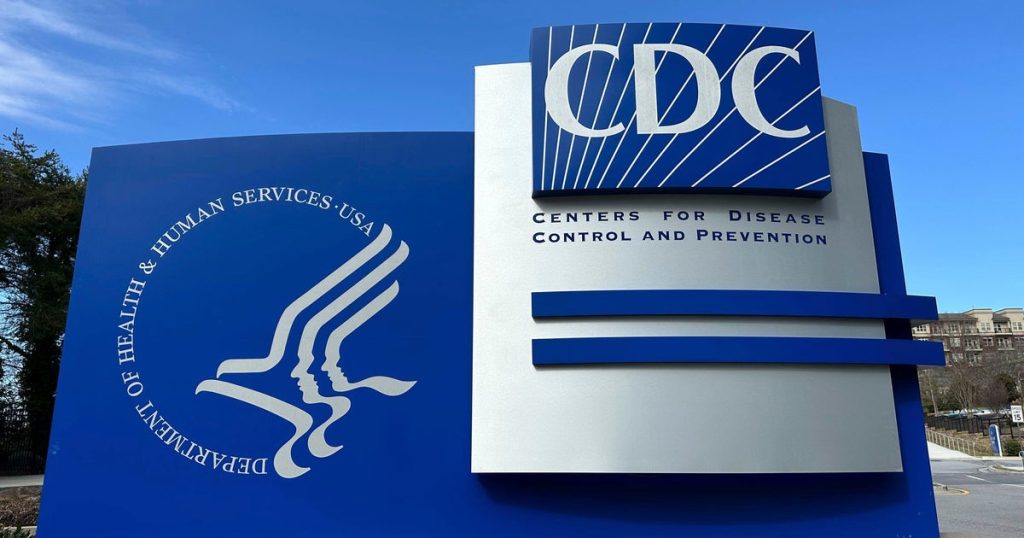The Centers for Disease Control and Prevention (CDC) has made a significant move by hiring Lyn Redwood, a nurse formerly associated with a controversial anti-vaccine group, to join its vaccine safety office. This decision has raised eyebrows as Redwood, who was president of Children’s Health Defense, has been publicly critical of the CDC’s stance on vaccines, particularly regarding thimerosal, a vaccine preservative. Redwood’s involvement is part of a broader recalibration within the agency, which is under the leadership of Robert F. Kennedy Jr., who now serves as the Secretary of the Department of Health and Human Services.
| Article Subheadings |
|---|
| 1) Hiring amidst controversy |
| 2) Thimerosal and its implications |
| 3) Response from medical communities |
| 4) Redwood’s past claims |
| 5) Future implications for vaccine policy |
Hiring amidst controversy
The recent appointment of Lyn Redwood by the CDC has raised considerable concern given her background and the public perception of the organization she led, Children’s Health Defense. Redwood’s group has been steadfastly opposed to some conventional vaccine practices and has actively sought to challenge vaccine mandates through litigation. This organization, initially founded by Robert F. Kennedy Jr., has positioned itself as an adversary to the mainstream understanding of vaccine safety. The move to employ Redwood suggests a shift in strategy within the CDC under Kennedy’s administration, who is keen on advocating for re-evaluated vaccine policies.
Thimerosal and its implications
One of the most contentious issues that Redwood intends to address is the vaccine preservative thimerosal, which many health organizations, including the CDC, have previously stated does not cause autism. Redwood is slated to present her views on thimerosal, asserting it as a neurotoxin linked to serious developmental disorders. Interestingly, thimerosal is used in less than 0.3% of flu vaccines given to pregnant women, according to the CDC. This statistic, however, is likely to become a focal point in her arguments as she presents her case to the newly appointed outside vaccine advisers at the agency.
Response from medical communities
The medical community has responded sharply to Redwood’s new role and her upcoming presentation to the CDC’s advisers. Experts point out that the fears surrounding thimerosal have been debunked numerous times, with extensive research backing the CDC’s claims that the preservative is safe. The University of Minnesota’s Vaccine Integrity Project commented on the controversial nature of Redwood’s views, stating that “public confusion over ethylmercury remains—confusion that anti-vaccine activists, such as Lyn Redwood, have sought to stoke.” This reflects a broader apprehension regarding the CDC’s credibility in light of leadership that may embrace a more contentious stance on vaccines.
Redwood’s past claims
Throughout her career, Redwood has consistently voiced concerns over other vaccine components as well. In previous interviews, she alleged that aluminum, which is found in some vaccines, could be linked to neurological issues in children, particularly those diagnosed with autism. The FDA, however, has defended the safety of aluminum in vaccines, insisting that the exposure levels are far lower than typical dietary intake. These longstanding claims by Redwood indicate her firm belief in a potential link between vaccines and serious health issues, a stance that many health officials regard as scientifically unfounded.
Future implications for vaccine policy
The appointment of Redwood comes at a time when vaccine policies in the United States are under intense scrutiny. As the COVID-19 pandemic has amplified discussions about vaccine hesitancy and safety, Redwood’s influence could pivot policy decisions that may have far-reaching implications for public health. Today, her role signifies not just a shift in personnel but also a potential transformation in how vaccine safety debates are framed. If Redwood successfully garners support for her claims within the CDC, it could result in weakened standards for vaccine safety guidelines, thus impacting vaccination rates across various populations.
| No. | Key Points |
|---|---|
| 1 | Lyn Redwood’s appointment as a special government employee in the CDC’s vaccine safety office has raised eyebrows due to her anti-vaccine affiliations. |
| 2 | Redwood will present concerns over thimerosal as a potential neurotoxin despite previous research categorically refuting these claims. |
| 3 | The medical community has reacted strongly against Redwood’s promotion and her views, emphasizing scientific consensus against the claims regarding thimerosal. |
| 4 | Redwood has previously claimed links between aluminum in vaccines and autism, a position contradicted by FDA findings. |
| 5 | Her role could influence future vaccine policies at the CDC, with potential implications for public health standards. |
Summary
The recent hiring of Lyn Redwood by the CDC signifies a pivotal shift in the agency’s approach to vaccine safety discussions and policies. Given her questionable background and associations, the implications of this appointment extend beyond mere personnel changes; they suggest a fundamental re-evaluation of vaccine safety standards amidst ongoing health debates. As the CDC prepares to potentially adapt its vaccine strategies under Redwood’s influence, public health officials remain on alert regarding how these changes could affect the broader vaccination landscape in the United States.
Frequently Asked Questions
Question: Who is Lyn Redwood?
Lyn Redwood is a nurse and former president of Children’s Health Defense, an anti-vaccine group, recently hired by the CDC to work in their vaccine safety office.
Question: What is thimerosal and why is it controversial?
Thimerosal is a preservative used in some vaccines that contains mercury. It has been linked to fears of causing autism, although extensive scientific studies have dismissed these claims.
Question: What role does the CDC play regarding vaccine safety?
The CDC is responsible for monitoring vaccine safety, developing recommendations, and conducting research on immunizations to ensure public health safety.


